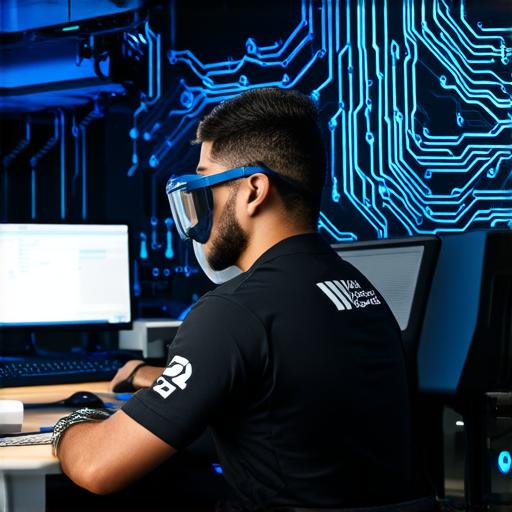How to be a blockchain engineer
Introduction
Blockchain technology is rapidly gaining traction in various industries such as finance, healthcare, and supply chain management. As more companies adopt this innovative technology, there is an increasing demand for skilled blockchain engineers.
Education: The Basics of Blockchain Engineering
Before diving into the technicalities of blockchain engineering, it’s essential to have a strong foundation in computer science concepts. A bachelor’s degree in computer science or a related field is recommended.
Once you have completed your basic education, it’s time to start learning about blockchain technology itself. Some of the key concepts to understand include:
- Cryptography
- Distributed ledger
- Smart contracts
- Mining
There are various resources available to help you learn about these concepts, including online courses, books, and forums. It’s important to stay up-to-date with the latest developments in blockchain technology by reading industry news and attending conferences and workshops.
Skills Required: Becoming a Blockchain Engineer
In addition to a strong foundation in computer science concepts, blockchain engineers must possess several specific skills to be successful in this field. These include:
- Programming skills
- Understanding of data structures and algorithms
- Familiarity with blockchain platforms
- Experience with cryptography
- Strong analytical skills
- Good communication skills
- Collaborative mindset
Becoming a Blockchain Engineer: A Step-by-Step Guide
Now that you have the necessary education and skills, it’s time to start your journey towards becoming a blockchain engineer. Here are some steps to follow:
- Gain practical experience
- Participate in online communities
- Build a personal brand
- Pursue certifications
- Continuously learn and improve
Real-life Examples: Blockchain Engineers in Action
To illustrate the role of a blockchain engineer, let’s look at some real-life examples of individuals who have successfully pursued this career path.
- Andreas Antonopolos
- Vitalik Buterin
- Conor Sweeney

Summary
Becoming a blockchain engineer requires a strong foundation in computer science concepts, practical experience, and a commitment to continuous learning and improvement. By following the steps outlined in this guide and gaining hands-on experience with blockchain technology, you can position yourself for success in this rapidly growing industry. Remember, the key to becoming a successful blockchain engineer is to stay up-to-date with the latest developments in this field and continuously improve your skills. With hard work and dedication, you can achieve your goal of becoming a blockchain engineer and make a meaningful impact in this exciting and innovative field.
FAQs
Here are the answers to some frequently asked questions about becoming a blockchain engineer:
- What are the necessary qualifications to become a blockchain engineer?
- What skills are required for a blockchain engineer?
- What is the job outlook for blockchain engineers?
- How can I gain practical experience with blockchain technology?
While there is no specific degree or certification required to become a blockchain engineer, a bachelor’s degree in computer science or a related field is recommended. In addition, practical experience and hands-on knowledge of blockchain technology are also important.
In addition to programming skills and knowledge of data structures and algorithms, blockchain engineers must possess several specific skills such as familiarity with blockchain platforms, cryptography, strong analytical skills, good communication skills, and a collaborative mindset.
The demand for skilled blockchain engineers continues to grow, with many companies seeking to adopt this innovative technology. According to a report by Grand View Research, the global blockchain market size was valued at USD 11.6 billion in 2020 and is expected to expand at a CAGR of 57.3% from 2021 to 2028.
There are several ways to gain practical experience with blockchain technology, including internships, freelance projects, and online courses. It’s also important to participate in online communities and attend conferences and workshops to stay up-to-date with the latest developments in this field.



